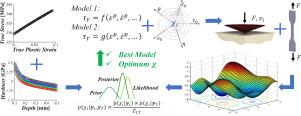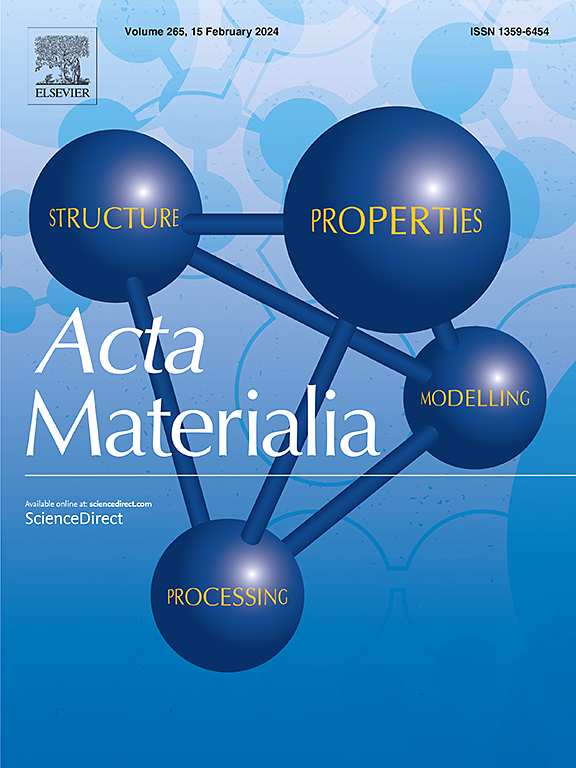A Bayesian-based approach for constitutive model selection and calibration using diverse material responses
IF 8.3
1区 材料科学
Q1 MATERIALS SCIENCE, MULTIDISCIPLINARY
引用次数: 0
Abstract
Constitutive models are essential for analyzing the structural performance of materials under complex loading conditions. However, multiple models with different sets of values of the parameters can describe a particular mechanical response of a material. Thus, treating model selection and parameter calibration separately and relying on a single mechanical response may lead to inaccuracies. Herein, we present a Bayesian-based approach that integrates model selection and calibration into a single-step process while concurrently evaluating multiple mechanical responses. We focus on constitutive models that include both strain and strain-rate hardening and evaluate both indentation and uniaxial tensile responses. Finite element simulations, combined with Gaussian process regressors, are employed to efficiently explore the multidimensional parameter space of all models and their resultant responses. To demonstrate the effectiveness of the proposed approach, we first use computationally generated responses of a known model-parameter combination as reference and compare it with the predicted model-parameter combination. We then apply the approach to experimental data, for which the model-parameter combination is unknown, and validate predictions by assessing a mechanical response not used for model selection and calibration. This validation highlights the robustness and predictive capability of our approach.

求助全文
约1分钟内获得全文
求助全文
来源期刊

Acta Materialia
工程技术-材料科学:综合
CiteScore
16.10
自引率
8.50%
发文量
801
审稿时长
53 days
期刊介绍:
Acta Materialia serves as a platform for publishing full-length, original papers and commissioned overviews that contribute to a profound understanding of the correlation between the processing, structure, and properties of inorganic materials. The journal seeks papers with high impact potential or those that significantly propel the field forward. The scope includes the atomic and molecular arrangements, chemical and electronic structures, and microstructure of materials, focusing on their mechanical or functional behavior across all length scales, including nanostructures.
 求助内容:
求助内容: 应助结果提醒方式:
应助结果提醒方式:


